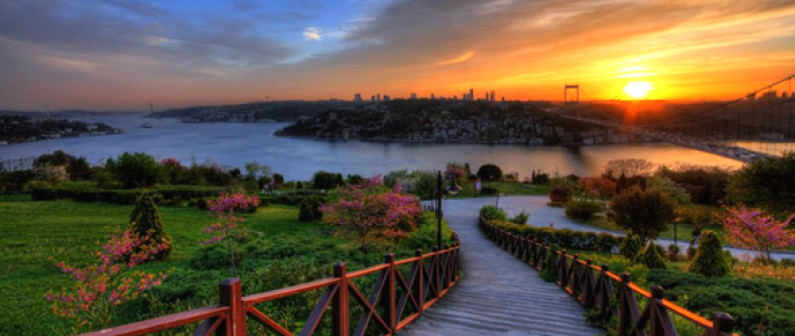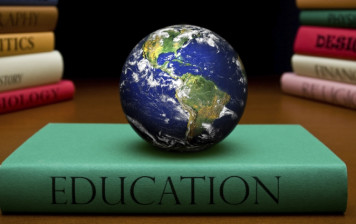
Fethullah Gülen
The term “civilization” can refer to any community-a village, a city, or a nation-that is bound together by human virtues.
Humanity has lived in civilizations of one kind or another since the beginning of history, but we are only civilized when we manifest ourselves as truly civil. Some identify civilization with industry, technology, or urban development. But these can only be the instruments of a prosperous life insofar as they are accompanied by human virtue; they should not themselves be mistaken for the essential elements of civilization.
Modernization can change the appearance of life, but it does not necessarily civilize people. True civilization is marked by the growth of human capabilities, and the civilized person is the one who flourishes spiritually and intellectually in the service of society. Therefore, civilization is first and foremost a spiritual and intellectual reality; it is not found in riches, luxury, or palaces. It cannot be found in production and consumption governed by the demands of corporeal pleasure. Rather, civilization is to be found in the ethical sphere.
Throughout our history, there have been many who sought civilization in material prosperity and have driven the masses toward modernization. This delusion has wasted our time and left wasted lives behind. Should we not instead seek the civilization of the soul that is spiritual perfection and self-renewal? Civilization is not like a garment that can be purchased and put on. We must envision it for ourselves and carefully prepare for it, taking into account all that is required for civilized generations to flourish.
In this regard civilization is essentially different from mere modernization. In the former, people are intellectually and spiritually renewed in the latter, it is only the facilities of life that are different. Nonetheless, whole generations have been duped by this confusion. They have been misled by confusion of concepts and by a distorted vision of the true value of faith, philosophy, morality, and culture. This is how nations degenerate. As they enjoy modern means and technical facilities, their elite classes begin judging who is civilized and who is not, thus committing the gravest sin against culture, which history will never forgive. Just as civilization is not identical to modernization, education is thoroughly different from enlightenment. There are many enlightened people without formal degrees, just as there are many well-educated but narrow-minded people with little sense of civility.
Such confusion in our concepts can lead us far astray. There seem to be many places in the modern world where black is called white, where tyranny wears the crown of justice while true justice is oppressed; dark souls are introduced as disciples of light, while the truly enlightened are considered to be ignorant: Such confusion is too often celebrated in the name of progress.
An enlightened society, freed from this confusion depends upon the existence of a genuinely enlightened people. Society is illuminated primarily by them-not those with degrees in natural and mathematical sciences. Aware of the needs of their time, these enlightened ones remain true to their heart and spirit, their mind and will. A perennial source of light shines inside them; they synthesize their inspiration with their thoughts and constantly share this light with the whole of society. Civilization is the result of their work, for they are shaped by true thought and belief; every new civilization is born out of their love and faith.
There can be no hope for a civilization in which there is no such love or faith. If a society is under despotic pressures, even the most incredible scientific breakthroughs cannot herald the coming of true civilization. In this context, it would be impossible to sustain any technological advancement. If a community is deprived of faith, love, and a sense of responsibility, no amount of science can establish a civilization there. Even if all institutions are renewed, the standard of living improved, and all apparel is modernized, civilization cannot be manufactured through technological change alone; it is an intellectual and spiritual endeavor. Otherwise, we could “civilize” an individual in a few short months and an entire society in a matter of years.
But alas! Our failure to advance in wisdom, despite our clear and rapid modernization, provides the most tragic evidence that civilization has nothing to do with the adoption of modern means and institutions. The intelligentsia of our nation, inspired by their colonial mentors, has long advocated for such a delusion, misleading the masses by presenting the developments of modern technology as if they were the promises of civilization. Our religion, language, and philosophy have been ruined, and thus the pathway to true civilization has been blocked. Whatever their intentions, the result of this mistake has been widespread destruction.
Fortunately, people have recently sought to gather around our traditional human virtues and establish civilization in its true sense, and this has ruined the plans of the colonial powers. It will be the duty of new generations to devote themselves to such an ideal in determination and faith.
This essay was originally written by Fethullah Gülen in August 1985
Source:
“A Fethullah Gülen Reader – So That Others May Live” Edited by Erkan Kurt. 2013. New York. Blue Dome Press. Pages 35-37.
Tags: Civilization | Fethullah Gülen's philosophy |Related Articles

Fethullah Gülen: A Muslim scholar, preacher and social advocate
Hizmet movement is a social movement that cherishes each and every human being as a unique creation of God while striving to achieve three overarching goals: (a) advocating…

Jealousy
It is narrated in a parable that Satan once asked God Almighty, “You forgive so many people, should my punishment and suffering not be over?” God Almighty reminded…

Fethullah Gulen’s educational philosophy as a core value of the Hizmet movement
In many parts of the world, the quality of education provided by Gulen schools is relatively high, especially in the field of physical sciences where high technology laboratories…
